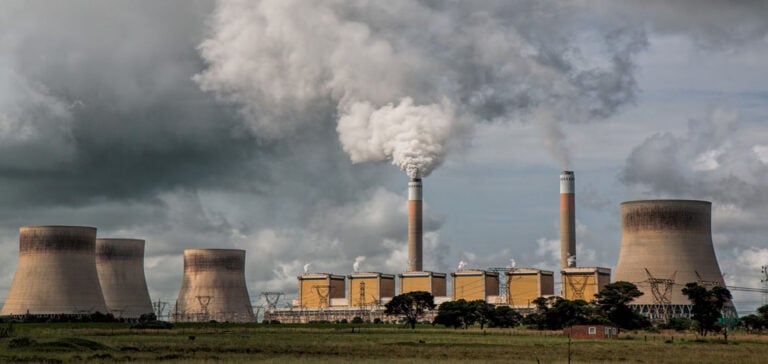Faced with a Dilemma, South Africa finds itself at a decisive crossroads. Indeed, a recent study by the Clean Air and Energy Research Centre raised a crucial question: what would happen if South Africa, a country heavily dependent on coal, delayed the decommissioning of its thermal power plants beyond 2030? According to the conclusions of this study, such a delay could lead to excess mortality attributed to air pollution, affecting more than 15,000 people. What’s more, this decision would have a substantial economic cost, estimated at over $18 billion, mainly in terms of maintenance expenditure.
The Consequences of a Worrying Delay
Earlier this year, the Minister of Electricity, Kgosientsho Ramokgopa, raised the possibility of postponing the decommissioning of some thermal power plants, while suggesting the refurbishment of others. So far, only one thermal power plant has been decommissioned, which would have prevented 220 deaths, according to the study. However, it is important to note that South Africa remains one of the world’s twelve biggest polluters, occupying seventh place in terms of coal production.
The impact on public health of prolonged operation of these plants would be considerable, with 6,200 deaths attributed to exposure to particulate matter, 3,500 to exposure to nitrogen dioxide and 5,700 to exposure to sulfur dioxide. Coal plays a crucial role in the South African economy, employing nearly 100,000 people and generating 80% of the country’s electricity. South Africa has just one nuclear power plant.
The Energy Crisis in South Africa
The country has been facing an energy crisis for months, characterized by scheduled blackouts lasting up to 12 hours a day. This situation has rekindled the debate on the transition to cleaner energy sources. However, this transition was not without its problems, and internal quarrels broke out within the government.
South Africa’s energy crisis has highlighted the tensions between those who advocate a rapid shift to cleaner energies and those who defend the coal sector, which has long enjoyed the support of the mining unions. Energy Minister Gwede Mantashe is a staunch supporter of the coal sector, which has led to a notorious conflict of interest within the government.
However, the energy crisis underlines the need for measures to reduce the country’s dependence on coal. In addition to the public health consequences, the economic cost of this addiction is enormous. South Africa needs to explore sustainable energy alternatives to ensure a more stable and environmentally friendly energy future. The transition to cleaner energy is not just an environmental issue, but also an economic one.
The Challenges of Energy Transition
The transition to cleaner energy may present challenges, but it also offers opportunities. It could boost the renewable energy sector, create jobs in areas such as solar and wind power, and reduce dependence on fossil fuels. What’s more, reducing greenhouse gas emissions would help combat climate change, a major global challenge.
South Africa also needs to learn from the examples of other nations that have succeeded in their energy transition, by putting in place incentive policies and financial incentives to encourage investment in clean energy. It is imperative to reconcile economic interests with the need to protect public health and the environment.
The situation in South Africa, where more than 15,000 lives could be at risk because of the delay in abandoning coal, is a poignant example of the issues involved in the energy transition. The country needs to strike a balance between preserving jobs and protecting public health. The energy crisis must be a catalyst for bold action to ensure a cleaner, safer future for all.






















